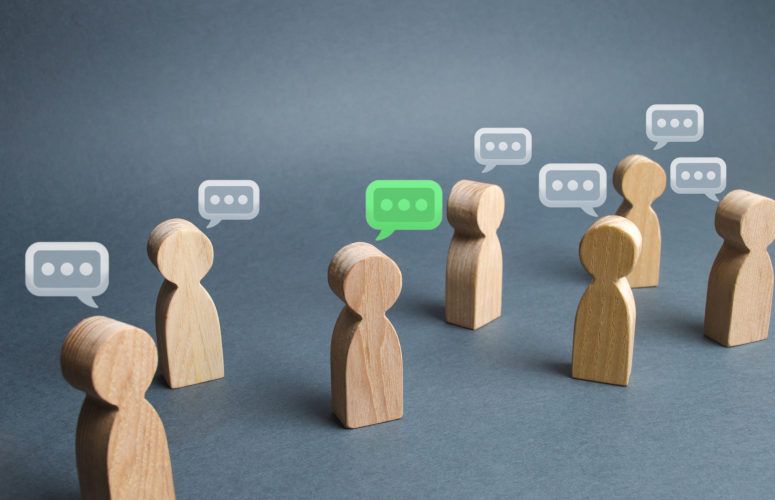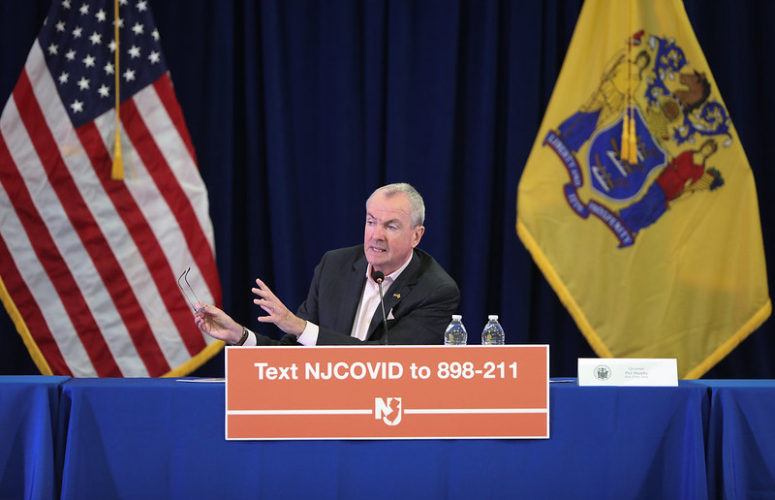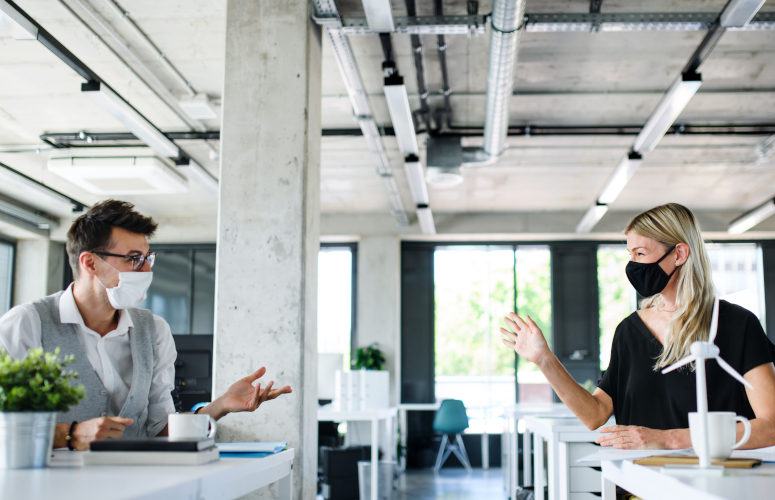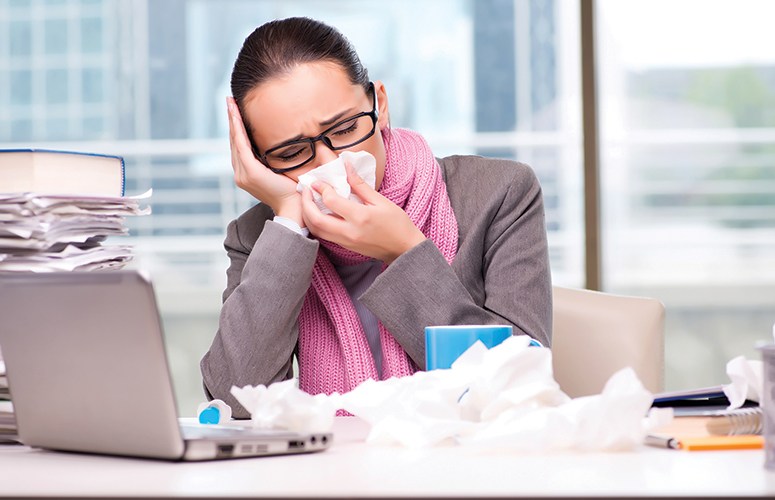
Poll: Federal Health Agencies Get Good Marks, But Give Mixed Messages on COVID
Majority support return of mask guidelines as worries tick back up
On Aug 3, 2021A bare majority of Americans, driven by Democrats, support bringing back masking and social distancing guidelines, according to a Monmouth University Poll conducted before the Centers for Disease Control and Prevention (CDC) announced its revised recommendations last week. The poll finds that public anxiety about contracting COVID-19 has ticked back up after hitting an all-time low last month and many are worried about another surge occurring. While many point to the unwillingness of some people to get the vaccine as a key reason for the recent rise in cases, there is little evidence that vaccine opposition in the American public has been dented much.
Before the CDC reversed course and announced new masking guidelines last week, the poll found a majority of Americans (52%) at least somewhat support instituting or reinstituting face mask and social distancing guidelines in their state. Another 46% are opposed. The partisan split on this question is huge – 85% of Democrats support bringing back guidelines while 73% of Republicans oppose it. Independents are divided with 42% in support and 55% opposed.
Health agencies in the federal government are generally seen as doing a good job dealing with the pandemic – a view shared by 57% of the public, compared with 33% who say these agencies are doing a bad job. At the same time, most Americans (59%) say these agencies, such as the CDC, have been giving mixed messages about COVID risks. Another 39% say these agencies have been largely consistent in their messaging.
“I think Americans acknowledge that the CDC and other health agencies have to deal with a lot of uncertainty. Still, it is tough for the average person to understand the flip from masks being optional to being necessary again. The messaging has not been clear,” said Patrick Murray, director of the independent Monmouth University Polling Institute.
Currently, 53% of the American public are at least somewhat concerned about a family member becoming seriously ill from the coronavirus. This marks an increase from a pandemic-era low of 42% recorded in last month’s Monmouth poll. However, the current finding remains lower than all prior results, which ranged between 67% and 83%. The number who say they are very concerned about a serious illness in their family now stands at 30%, which is up from 23% in June but still lower than the prior range of 37% (early June 2020) to 60% (January 2021).
Just under half (48%) of Americans are at least somewhat concerned about catching one of the new coronavirus variants. Interestingly, those who have received at least one vaccine dose (57%) are somewhat more likely to be worried about catching one of the new variants than those who are unvaccinated and either ready to get the shot or are waiting a little longer to see how it goes (47%). On the other hand, extremely few (16%) of those who remain vehemently opposed to getting the vaccine have any concern about catching one of the new variants.
“Many, if not most, anti-vaxxers believe COVID is a hoax or they are unlikely to get infected. Which means there may be very little that can be done at this point to change their minds,” said Murray.
Currently, 68% report receiving at least one dose of COVID vaccine – which is in line with current CDC reports – while 2% will get it as soon as possible and 9% remain hesitant, but persuadable.
However, 17% say they remain opposed to getting the vaccine at all. Among those who admit they will not get the vaccine if they can avoid it, 70% either identify with or lean toward the Republican Party while just 6% align with the Democrats. Among those who are planning to get the vaccine or are persuadable, 45% are Republicans or lean toward that party and 40% are Democrats or Democratic leaners. Among those who have already received the vaccine, 32% fall on the Republican side of the political divide and 59% are on the Democratic side.
The 17% who are opposed to the getting vaccine look slightly lower than past results (which ranged 21% to 24%) but there is an important caveat. Another 4% of those polled did not answer this question (which is up slightly from past polls). As in prior polls, the partisan profile of this “don’t know” group looks extremely similar to the anti-vax group. The anti-vax and non-response groups together form a combined 21% of the public, which is similar to the number recorded in polls in April and June (23%).
“This could be a data blip, but it’s possible that more anti-vaxxers refuse to admit their position publicly now that leaders in their own party are pointing the finger at them for the recent surge. However, it is not clear that calling them out has moved many, if any, of them from their vehement anti-vax stance,” said Murray. He added, “On the other hand, we are starting to here anecdotal reports of some folks who were opposed to the vaccine getting it on the sly. Perhaps they are worried it will undercut their credibility in the partisan tribe if they admit it. The fact that we have to consider these possibilities is a reflection of how much our political discourse has deteriorated.”
Overall public concern about another surge happening if not enough people get vaccinated has increased in the past month, from 57% who expressed at least some concern about this in June to 65% today. Of note, the number who are very concerned about another surge has increased from 26% to 44%.
Nearly half (46%) of the public says most of the recent increase in COVID cases in some parts of the country is due to people not being willing to get the vaccine. In a separate question, 22% say most of the increase would have happened anyway regardless of how many people are vaccinated. The usual partisan divides are present in these results, with Democrats (68%) being more likely than Republicans (29%) to blame vaccine opposition for most of the recent rise in COVID cases.
In other poll results, President Joe Biden continues to get positive reviews for his handling of the pandemic, with 55% saying he has done a good job and 38% saying he has done a bad job. The public gives similar marks for how their state governors have handled COVID (54% good job and 42% bad job). However, the good job number for both the president and governors has decreased by 4 points since June.
Opinion has grown even more negative on how the American public has been dealing with the outbreak, with 32% saying it is doing a good job – down from 42% in June – and 51% saying it is doing a bad job – up from 40%. The current result marks a return to similar negative rating for the American public from late June 2020 to March 2021.
The Monmouth University Poll was conducted by telephone from July 21 to 26, 2021 with 804 adults in the United States. The question results in this release have a margin of error of +/- 3.5 percentage points. The poll was conducted by the Monmouth University Polling Institute in West Long Branch.
To access more business news, visit NJB News Now.
Related Articles:





